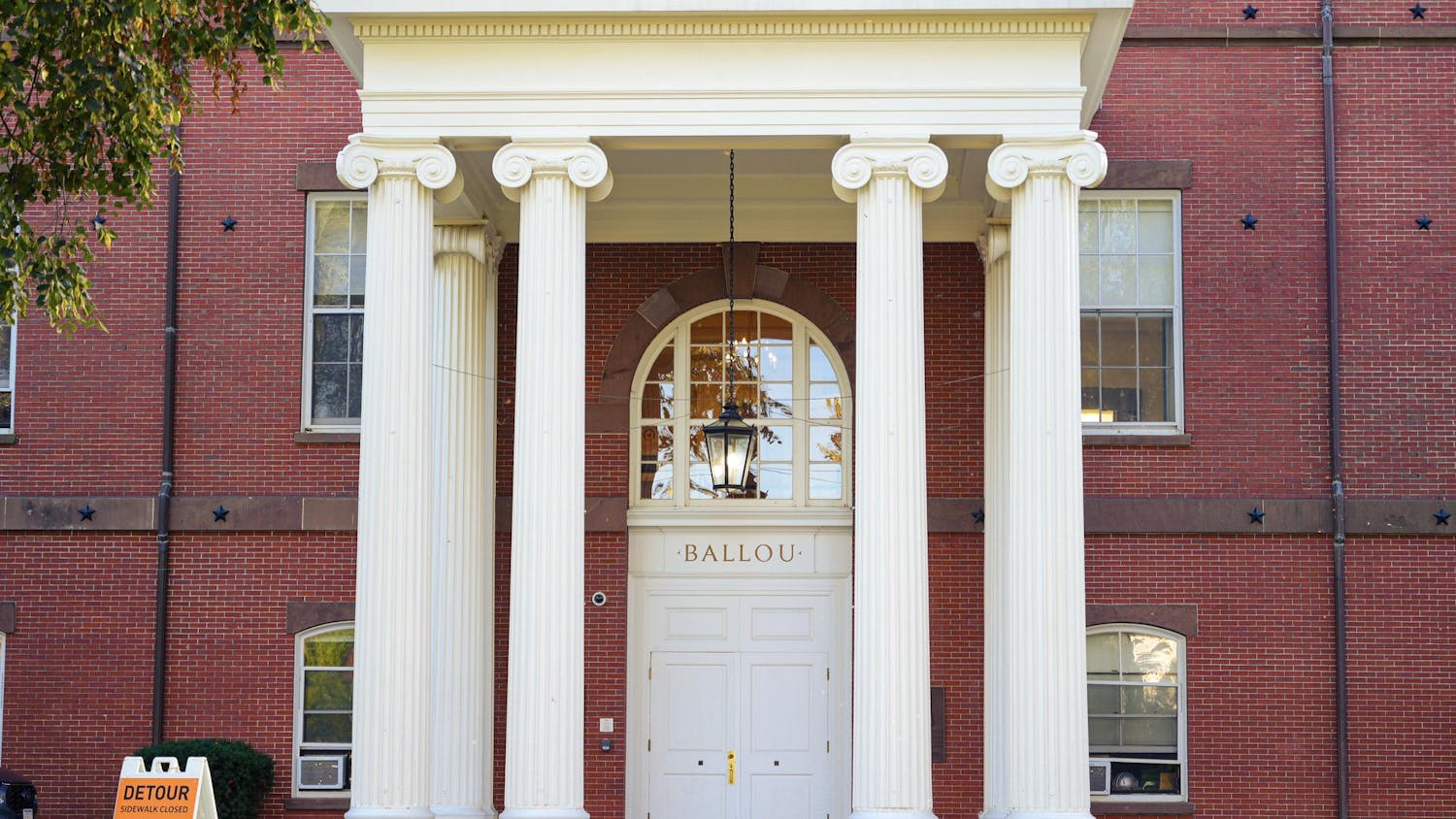Content warning: This article discusses mental health.
Five-time All-Star and NBA champion Kevin Love discussed his experience coping with mental health issues at a discussion in Cohen Auditorium on Nov. 29. Moderated by The New York Times sports columnist Juliet Macur, the talk was part of a series of Times-backed conversations, titled “Get with the Times," dedicated to exploring issues relevant to students.
The event, focused on mental health in sports and beyond, began with a discussion of Love’s essay published on March 6 in The Players’ Tribune. In “Everybody’s Going Through Something,” Love detailed the role of mental health in his life, including a panic attack he experienced just after halftime of the Cleveland Cavaliers' Nov. 5, 2017 matchup against the Atlanta Hawks.
Love told the audience that he “didn’t feel right all day” leading up to the game. He also described the pressures that existed for him at the time, which included stresses in his family life as well as in his athletic career.
“I was sticking my hand down my throat trying to grab something that wasn’t there. I was panicking, [covered in] sweat,” Love said, describing his panic attack in the Cavaliers locker room. “I’d come to a point where I felt I was having a heart attack and that I was going to die.”
Love said that he tried to disconnect himself from his emotions, fearing his teammates would see him as "weak."
"As young men that is what we are taught to do,” he said. “I was afraid my teammates would think I was weak, that people would think less of me."
Love, however, noted that his teammates supported his speaking out about his history of mental health struggles, explaining how senior teammates such as Kyle Korver and LeBron James offered help and thanked Love. Love also said that current and former players, including DeMar DeRozan, Channing Frye and Paul Pierce, shared their stories with him since the essay's publication.
The talk was followed by a question-and-answer session in which Love took questions from the crowd and via video from other watch parties across the country. When Ayoub Khadar, a junior, asked Love who the one person, dead or alive, with whom he’d choose to have dinner, Love — who earlier had alluded to his fascination with Anthony Bourdain’s TV series “Anthony Bourdain: Parts Unknown” (2013–18) — chose the famous chef, who had his own mental health struggles. Love said that he would have wanted to see what he could have done to provide support to the culinary personality.
Love added that he sees himself continuing his career in basketball, in the hopes that he could continue to use his platform to spread awareness about mental health.
Love’s appearance came as Tufts received The HBC Foundation’s inaugural JED Campus grant of $300,000, according to Jacklyn Varela, communications and project administrator in the Office of the President. The JED Campus initiative helps schools “create positive, systemic change in the campus community," according to its website.
“The HBC Foundation [awarded] its first grant to Tufts to be a [JED Campus],” Varela said. “It’s an honor that Tufts was selected to receive this grant; hosting Kevin Love on campus elevates the conversation about student mental health.”
Tufts' Executive Director of Health and Wellness Michelle Bowdler said that the nonprofit Jed Foundation focuses on mental health and suicide prevention on college campuses.
“[The Jed Foundation is] very generous with the information ... they have," Bowdler said. "They have different models on how to set up effective and comprehensive mental health education on campus, they have protocols and policies related to suicide prevention, and so they’re very generous sharing these online and we’ve been following them for years and their work and respect them very much.”
Bowdler added that as the university recently completed its Mental Health Task Force assessments across its campuses, the partnership with the Jed Foundation allows it to continue expanding discussions about mental health.
Kevin Love discusses mental health activism at The New York Times event

Cleveland Cavaliers forward Kevin Love, a five-time NBA All-Star and Olympic gold medalist, discusses his activism on mental health-related issues with The New York Times columnist Juliet Macur in Cohen Auditorium on Nov. 29.





